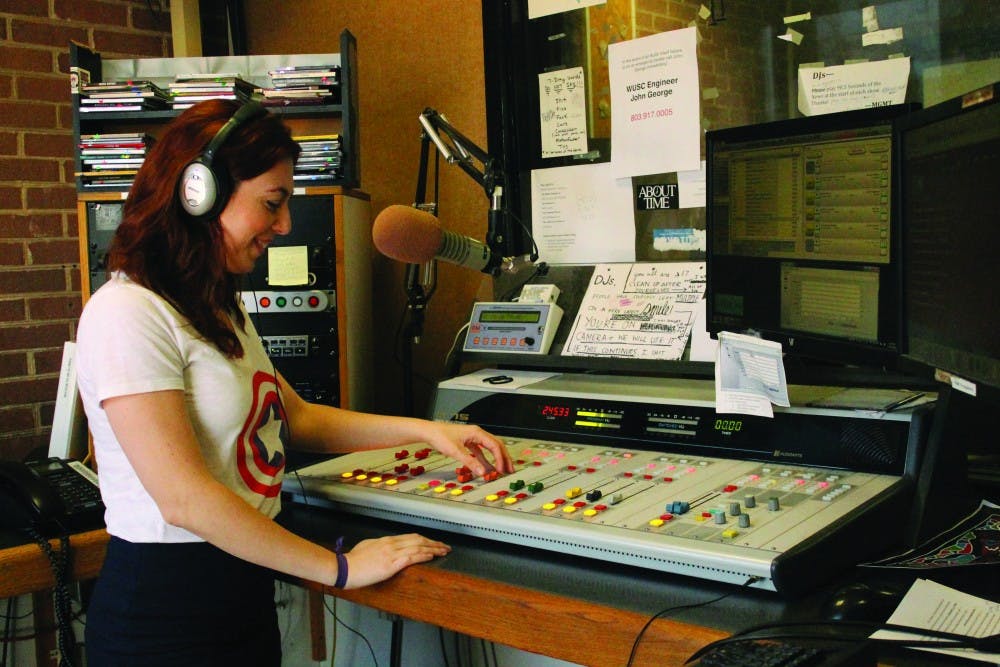Meg Southern, assistant principal at the international house at Maxcy College, aspires to create an educational dialogue between international students and students in Columbia through her radio show, “Passport Playlist.”
Tune in on Mondays from 2 p.m. to 4 p.m. to hear international tunes and learn about different cultures. Also, check out the show’s playlist, “audio_voyager," on Spotify.
Meg Southern’s favorite international songs
1) "GodWin" by Korede Bello (Nigeria)
2) "Hao Hua Hong" by Béla Fleck and Abigail Washburn (U.S. duo covering traditional Chinese New Year song)
3) "Cooley's / The Cup of Tea / The Wise Maid" by Tulla Céilí Band (Scotland)
4) "No Näed" by Mari Pokinen (Estonia)
5) "Revolution" by Helly Luv (Iran/Kurdish)
How did you come up with the idea for this show?
We didn’t want everything to be just kind of in a classroom setting. Everybody loves music — we figured that was a good way to get people talking about things that are different. You know, every country has its own musical tradition and a list of artists that are unique to that country, so we thought it would be a good way to get students talking about things that really excite them.
What is the format of the show?
Each week we have a new international guest on the show, and they bring a playlist of artists from their home countries, and we divide it into sets of about four or five songs. In between those sets we talk about different topics that are pertinent to international living. So example questions I might ask — I always ask them to introduce themselves at the beginning of the show — “What’s your name?" “What year are you?” “What are you studying?” — and kind of the same questions you would ask in an interview. Then in subsequent sets I will ask them things like, “What’s food like in your country?” “What big holidays are coming up?” “What’s the predominant religion?” “What’s the predominant language?”
What has surprised you most about this experience?
I think it's really how powerful music can be even if you don't understand the lyrics. Obviously lyrics are powerful, and understanding a foreign language allows you to connect with people on a level of intimacy you can't always attain through translation to English. But music itself is also a very intimate form of communication. So many times we've played music that was totally new to me, that has lyrics that are still inscrutable because I don't speak Wolof or Hindi or Dutch, but that music still communicates a feeling that transcends other kinds of language. It's really amazing how universal emotions can be, even if you don't have words for them in your native tongue, and music has the power to convey that.



